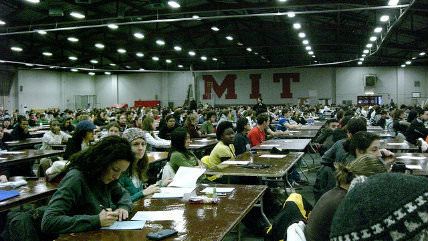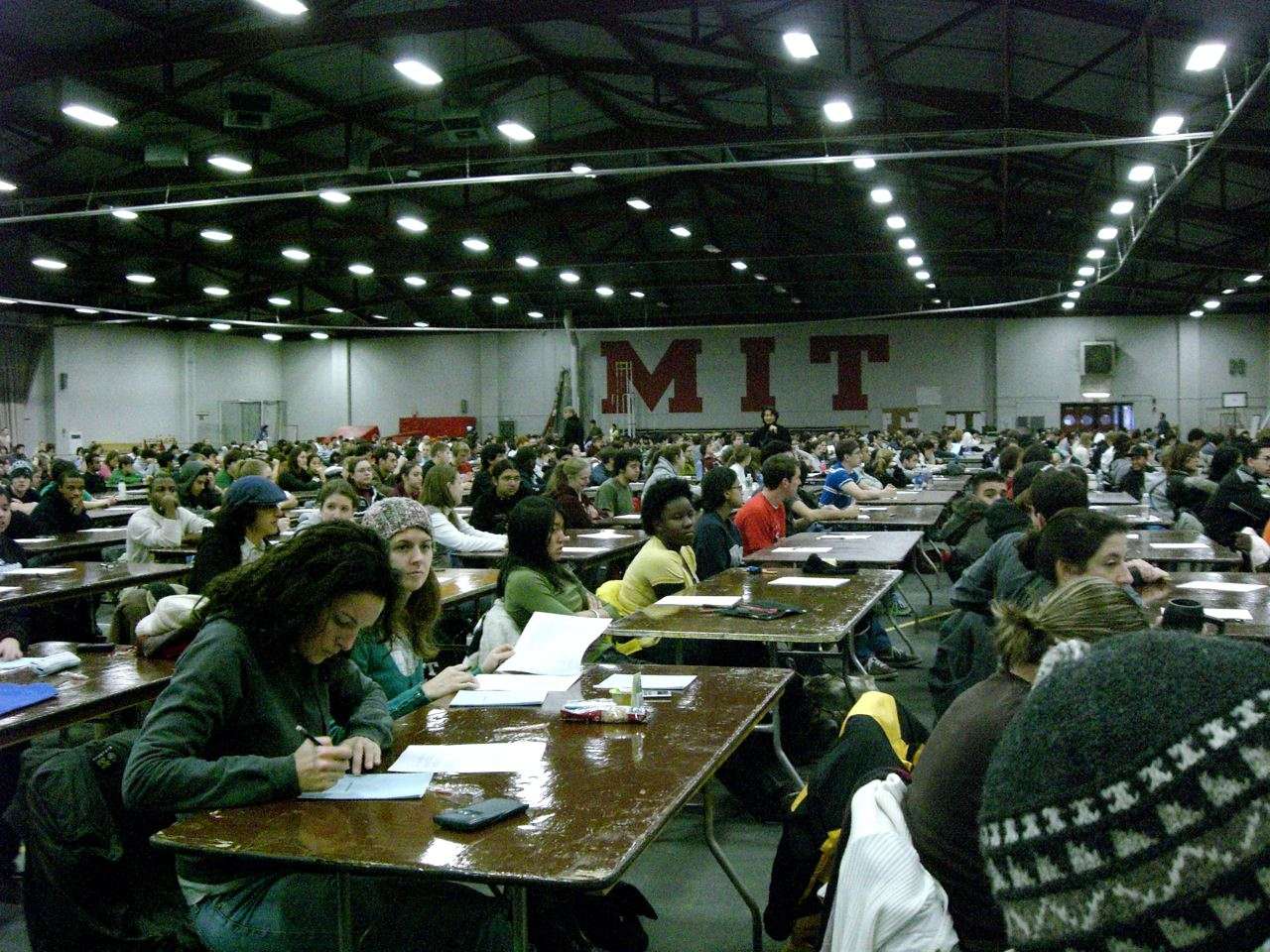Half of MIT Students Think It's Possible to "Accidently" Rape Someone (Thanks, Affirmative Consent!)


Whether rape happens on U.S. college campuses at rates similar to elsewhere in America or to rates in Tanzania and South Africa has been a major subject of dispute recently. Folks from President Obama to swearing 5-year-olds princesses have been citing a statistic that 20 percent of women on college campuses, or one in five, will be sexually assaulted while there—a stat that has also been routinely debunked. However, a new sexual assault survey from the Massachusetts Institute of Technology (MIT)—one of the first schools to release broad data on campus sex crimes—seems to corroborate everyone's favorite sketchy stat.
Or does it? Media are reporting that one in six female undergraduates at MIT have been sexually assaulted (with this translating in some headlines and social media shares to "one in six have been raped"). But the MIT survey suffers from the same issues that plague previous studies on campus sexual assault.
First, the survey's methodology: In April, MIT emailed its sexual assault survey to all 10,831 undergraduates and graduate students. Students could then opt to take the survey or not. Ultimately, 35 percent of MIT students did. But whenever you have an opt-in survey, those who self-select to take it are not necessarily representative of a given population. Or, as MIT researchers put it, "response bias is expected in virtually any voluntary survey, particularly one focused on a narrow topic. … the rates based on those who responded to the survey cannot be extrapolated to the MIT student population as a whole."
It's also worth noting that the definition of sexual assault—in both the MIT survey and previous campus sexual assault studies—is a broad one, including forced sexual penetration, forced oral sex, and unwanted "sexual touching" or kissing. Of course there are all sorts of levels of sexual assault, and just because something doesn't approach the level of forced intercourse (i.e., rape) doesn't mean it's not a serious violation. But let's be clear that MIT's "1 in 6" stat is decidely not about the number of students who are rape victims, nor is the much bandied-about "1 in 5" college women stat.
So!, now that we've cleared up what the MIT study did not find, let's look at what it did, starting with intriguing student attitudes toward sexual assault. Contra the affirmative consent crowd, it doesn't seem that a lack of respect or enthusiasm for obtaining sexual content is a big problem: 98 percent of females and 96 percent of males agreed or strongly agreed that it's important to get consent before sexual activity.
But students are confused about how alcohol and intoxication affect consent, which perhaps speaks to increasing progressive activism around the idea that drunk people can't give consent. Only about three-quarters of respondents said they feel confident in their own ability to judge whether someone is too intoxicated to consent to sex. And more than half agreed that "rape and sexual assault can happen unintentionally, especially if alcohol is involved."
I just want to repeat that one more time: Half of the MIT students surveyed think it's possible to "accidently" rape someone. When you consider undergraduates alone, this rises to 67 percent.
This is what we get when people push an idea that rape is really often a matter of consent confusion or a drunken misunderstanding and not something that one person (the rapist) intentionally does to another. This is exactly what those of us opposed to affirmative consent standards mean when we worry about it muddying the waters of consent and confusing the definition of rape. About a fifth of female undergraduates and a quarter of male undergraduates surveyed agreed that "when someone is raped or sexually assaulted, it's often because the way they said 'no' was unclear or there was some miscommunication."
When it comes to experiences of sexual assault since starting at MIT:
- 1 in 20 female undergraduates, 1 in 100 female graduate students, and zero male students reported being the victim of forced sexual penetration
- 3 percent of female undergraduates, 1 percent of male undergraduates, and 1 percent of female grad students reported being forced to perform oral sex
- 15 percent of female undergraduates, 4 percent of male undergraduates, 4 percent of female graduate students, and 1 percent of male graduate students reported having experienced "unwanted sexual touching or kissing"
All of these experiences are lumped together under the school's definition of sexual assault.
When students were asked to define their own experiences, 10 percent of female undergraduates, 2 percent of male undergraduates, three percent of female graduate students, and 1 percent of male graduate students said they had been sexually assaulted since coming to MIT. One percent of female graduate students, one percent of male undergraduates, and 5 percent of female undergraduates said they had been raped.
For undergraduates, most of these "unwanted sexual experiences" (the umbrella term MIT uses) occured while on campus, while graduate students were more likely to report incidents that took place away from MIT. A little under three-quarters (72 percent) of respondents said the perpetrator was a fellow MIT student. For women, all but 2 percent of perpetrators were males; for male victims, 35 percent of the perpetrators had been male and 67 percent had been female.


Show Comments (100)